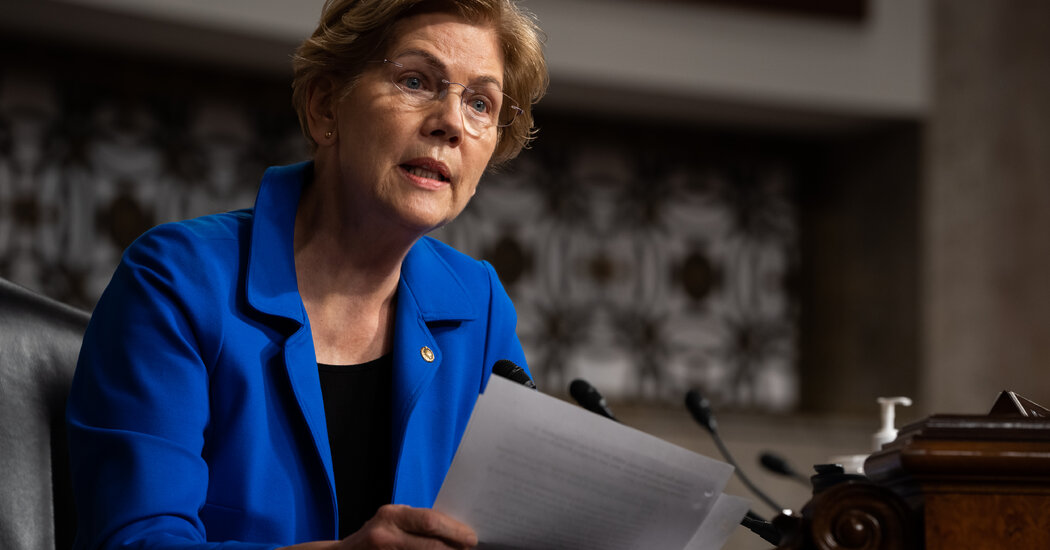Four US senators want Treasury Secretary Janet L. Yellen to explain how her department plans to get cryptocurrency companies and other digital asset intermediaries to do their part in enforcing economic sanctions against Russia.
In a letter on Wednesday, four Democrats — Elizabeth Warren of Massachusetts, Mark Warner of Virginia, Sherrod Brown of Ohio and Jack Reed of Rhode Island — also asked whether decentralized financial structures that operate without any intermediary stood in the way of sanctions enforcement.
“Given the need to ensure the effectiveness and integrity of our sanctions program against Russia and other adversaries, we are seeking information on the steps Treasury is taking to enforce sanctions compliance by the cryptocurrency industry,” the lawmakers wrote. , all members of the Senate Banking. Commission.
In response to the Russian military attack on Ukraine, Western countries and international companies such as Apple, BP and Shell have imposed a series of restrictions. Some Russian banks are blocked from SWIFT, the communication system that simplifies cross-border bank transfers, and transactions with the Russian central bank are also blocked.
But there is growing concern that Russia could turn to digital assets such as cryptocurrencies or its own digital ruble to ease the pressure of these restrictions. A 2021 Treasury report highlighted the growing digital asset market as a potential problem for governments hoping to change the behavior of rogue states by punishing them economically. And last week, The New York Times detailed the many cryptocurrency tools available to Russian entities that want to continue making deals without involving the traditional banking sector.
“These reports are even more troubling because of analyzes suggesting that the cryptocurrency industry is failing to fulfill its responsibility to comply with US sanctions,” the senators wrote.
A spokesman for the Ministry of Finance did not respond to a message asking for comment on Wednesday.
Cryptocurrency trading with rubles has jumped since the United States and many of its allies have imposed sanctions, according to crypto tracking firms Chainalysis and Kaiko. But the significance of the surge is unclear: It could indicate affected Russian entities are converting wealth into cryptocurrency, but it’s also possible that ordinary Russians are turning to the technology to preserve their savings as the ruble’s value plummets.
Major crypto exchanges including Binance and FTX have pledged to comply with US sanctions, but industry has resisted calling of the Ukrainian government to freeze all Russians’ access to cryptocurrency. The United States has not asked the companies to take such action.
“Our mission is better served by focusing on individual needs over those of any government or political faction,” said Jesse Powell, the chief executive of crypto exchange Kraken. wrote on Twitter this week. Cryptocurrencies, he said, are “a weapon for peace, not war.”
Experts have warned that Russia is preparing to counter sanctions by developing new tools to mask the source of crypto trading. State-backed hackers can also hijack digital assets to make up for lost revenue, they said.
The war between Russia and Ukraine and the world economy
But industry executives have argued that such concerns may be exaggerated, in part because law enforcement has shown an increasing ability to track transactions on the blockchain, the ledger underpinning cryptocurrency. They also point out that crypto markets are small and costly to use, which will make it difficult for Russia to use crypto to evade sanctions aimed at destabilizing the entire economy.
“The inherent features of crypto – transparency, immutability, irreversibility, and censorship resistant – do not lend themselves to financial embezzlement,” said Jorge Pesok, general advisor to crypto software company Tacen.
The senators asked Ms. Yellen to respond to their questions by March 23.

